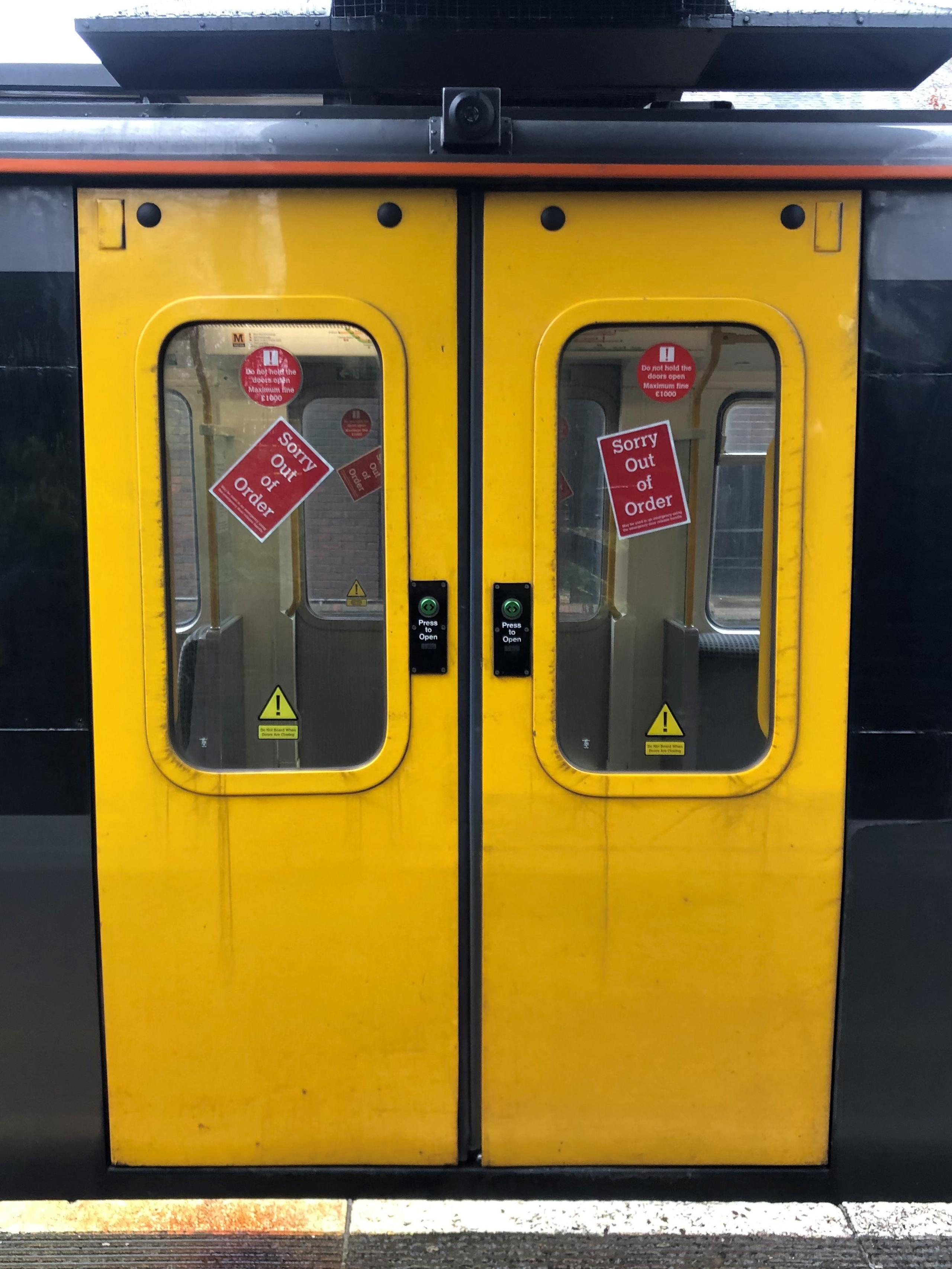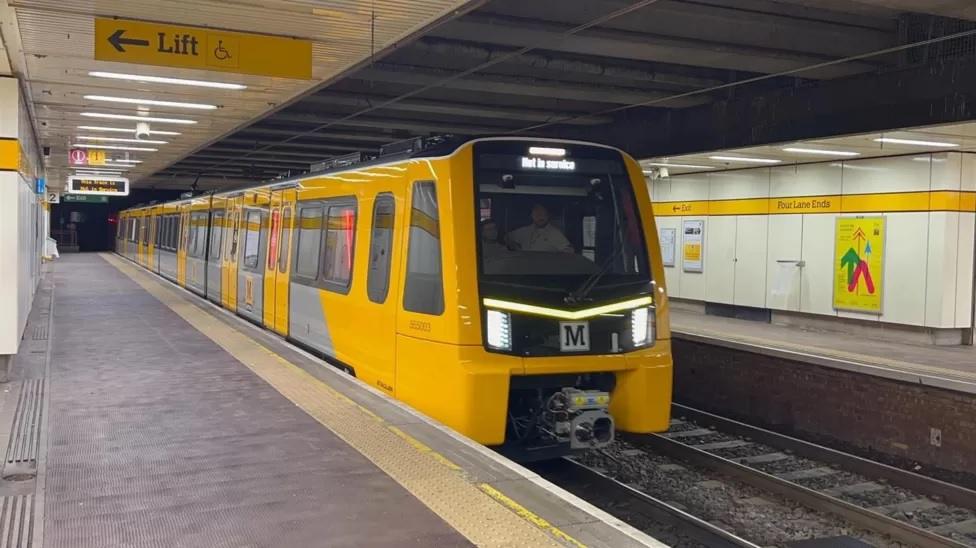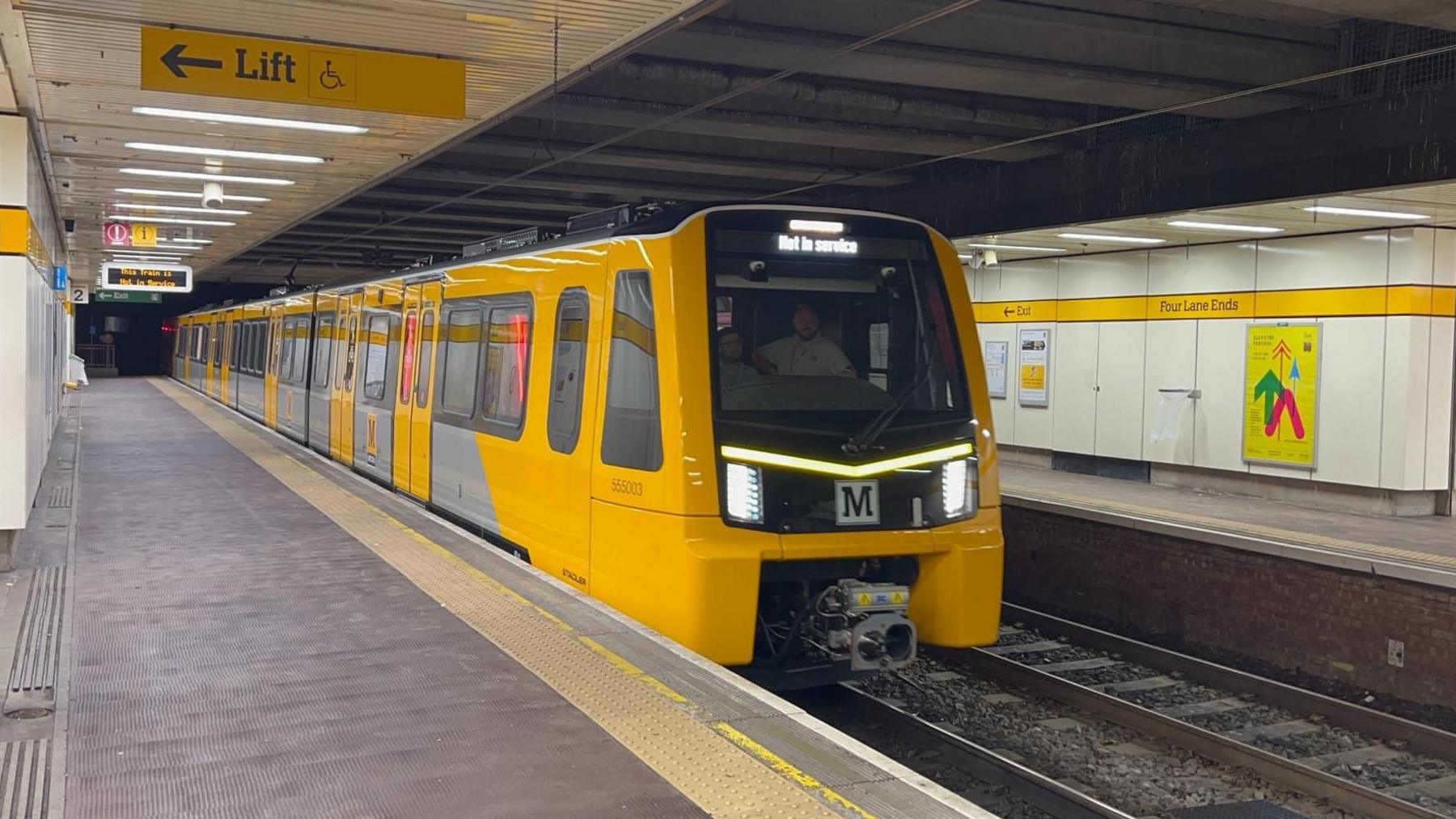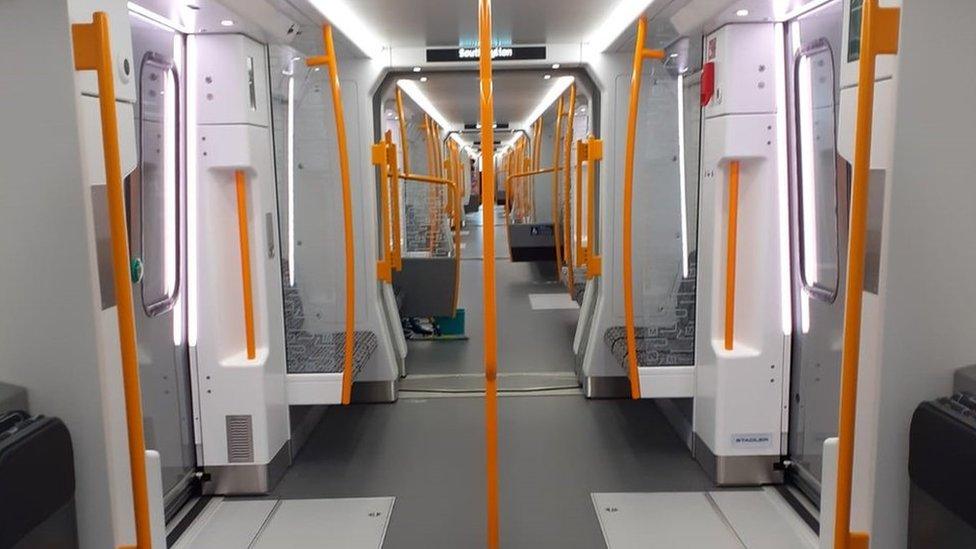Metro reliability improves after formal warning

Passengers have been met with faulty trains and delays as Metro continues to operate with its aging fleet
At a glance
The Tyne and Wear Metro operator says services are more reliable due to improved maintenance
Fed-up passengers have faced delays due to a raft of problems
Brand new trains will enter the system from later this year
Issues have also been put down to difficulty in finding spare parts
- Published
Metro services have become more reliable since bosses issued a formal warning to the firm in charge of maintaining its deteriorating trains.
The operator of the Tyne and Wear service, Nexus served a remedial notice to Swiss manufacturer Stadler on 31 March, demanding improvements after a swathe of services were cancelled.
Recent figures for May put train punctuality at 86.2 per cent, a jump from an average of 71.2 per cent between November and February.
Nexus said Stadler was "working around the clock" to improve train availability and had submitted a detailed plan.

The new class 555 train has completed its first test run on the system
In one period over the winter, a third of services were failing to arrive on time, which Nexus deems as being within a window of 30 seconds earlier than scheduled or three minutes late.
Its ageing train stock, which has served the system for 43 years, also saw extra peak time services pulled due to a lack of available and functioning carriages.
As well as broken down trains, Metro services have been hit with a string of problems including a fire, flooding, cable theft, industrial action, anti-social behaviour, staff sickness, storm damage at Whitley Bay station and an overhead line collapse.
'Ongoing challenge'
The fleet is set to be replaced with 46 brand new Class 555 metro trains, with the first set to enter service later this year.
Stadler, which has taken on responsibility for maintaining the existing fleet while it builds the new one, submitted a plan of action to Nexus on 1 May, the Local Democracy Reporting Service said.
Nexus' operations director Kevin Storey called it "an ongoing challenge" to keep the trains moving ahead of the transition to the new ones.
“We hope that our customers are beginning to see a difference. We know that we have a long way to go but we are getting there," he said.
The new trains are to be phased into customer service through to 2025.
Stadler said it was “taking every possible measure to ensure optimal operation” of the existing fleet, despite its increasingly difficult state.
“Acquiring replacement parts for the ageing trains can be challenging and new components are not always easily available," a spokesperson said.
"Nevertheless, by closely collaborating with our suppliers, we are striving to expedite the train repair process."
Related links
Follow BBC North East & Cumbria on Twitter, external, Facebook, external and Instagram, external. Send your story ideas to northeastandcumbria@bbc.co.uk, external.
- Published10 May 2023

- Published27 August 2022
